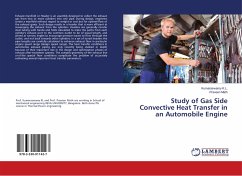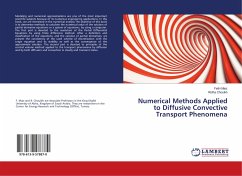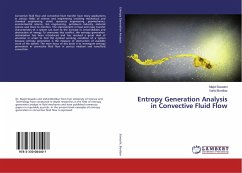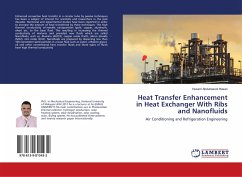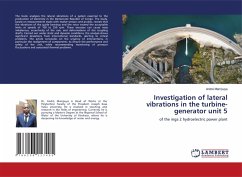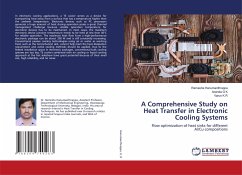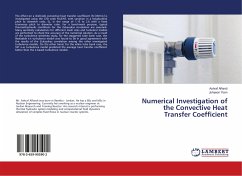
Numerical Investigation of the Convective Heat Transfer Coefficient
Versandkostenfrei!
Versandfertig in 6-10 Tagen
24,99 €
inkl. MwSt.

PAYBACK Punkte
12 °P sammeln!
The effect on a shell-side convective heat transfer coefficient (h) [W/m.k] is investigated using the CFD code FLUENT, with variation in a longitudinal pitch to diameter ratio, SL, in the range of 1.15 to 2.6 with a fixed transverse pitch to diameter ratio. For a benchmark purpose, typical thermal-hydraulic conditions for the Zukauskas correlation are assumed. Many sensitivity calculations for different mesh sizes and turbulent models are performed to check the accuracy of the numerical solution. As a result of the turbulence sensitivity study, for the staggered tube bank case, the Realizable ...
The effect on a shell-side convective heat transfer coefficient (h) [W/m.k] is investigated using the CFD code FLUENT, with variation in a longitudinal pitch to diameter ratio, SL, in the range of 1.15 to 2.6 with a fixed transverse pitch to diameter ratio. For a benchmark purpose, typical thermal-hydraulic conditions for the Zukauskas correlation are assumed. Many sensitivity calculations for different mesh sizes and turbulent models are performed to check the accuracy of the numerical solution. As a result of the turbulence sensitivity study, for the staggered tube bank case, the Realizable - turbulence model was found to be in good agreement with the results of the Zukauskas correlation among the other investigated turbulence models. On the other hand, for the inline tube bank case, the SST - turbulence model predicted the average heat transfer coefficient better than the -based turbulence models



